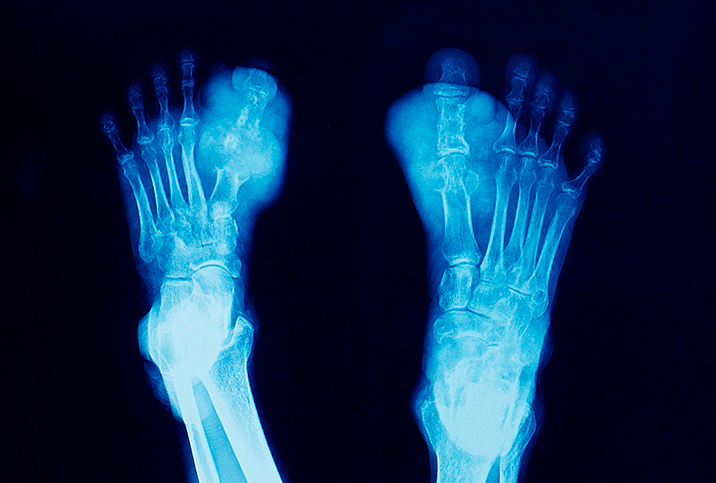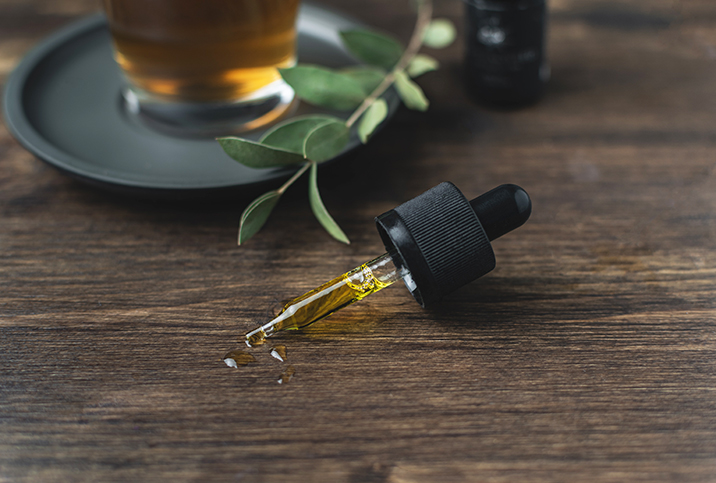What to Know With Gout on the Rise

Once referred to as the "disease of kings," gout was once believed to only affect wealthy men who frequently indulged in decadent foods, such as shellfish, red meat and alcohol.
While diet certainly plays a part in the onset of gout, it's obviously not reserved for kings, as queens get their fair share, too.
According to the National Institutes of Health, gout occurrences have increased dramatically in the last 20 years, most likely due to changes in our diets. Since the disease is affecting more and more Americans, it's important to recognize its symptoms and who is most at risk.
Symptoms and side effects
The Mayo Clinic reports that gout is the most common type of arthritis. A gout attack can affect anyone, and symptoms begin with pain and swelling, most commonly in the joint of the big toe.
"Symptoms are caused by the formation of urate crystals that produce an inflammatory reaction," said David M. Cutler, M.D., a family medicine physician. "The higher the urate concentration in blood and tissues, the more likely it is [you'll] have a gout attack.
"Gout attacks can come out of nowhere but most often occur at night and can last for several days. Once the urate crystals form in the joints, the area becomes swollen, red and extremely painful to the touch," Cutler continued. "Although women are less likely to have gout attacks, it can still affect them."
The National Institute of Health reports that since 1963, research has illustrated how uric acid affects sperm quality and motility. According to this report, "high levels of uric acid may induce adverse effects to sperm function, at least in part, by reducing the activity of vital enzymes in spermatozoa." However, more research needs to be completed on the effects of uric acid on fertility.
Preventing a gout attack
The good news is that simple lifestyle changes can help prevent gout from recurring.
First, it's crucial to figure out what triggers a flare-up. The Arthritis Foundation recommends trying a balanced diet to lower uric acid quickly. The Mediterranean diet is also recommended to maintain healthy levels of uric acid.
Attacks can be precipitated by food, drink, medication, dehydration or minor trauma. The foods that trigger gout are high in purines, such as red meat and certain fish, as well as many alcoholic drinks. In days gone by, only the rich could afford to indulge themselves in quantities significant enough to cause gout. Nowadays, high purine foods are accessible to all, hence gout's recent rise.
Treating gout pain effectively
Anyone who has experienced a gout attack will tell you that treating the pain can be difficult and the process slow.
Certain medications can also make gout attacks more likely.
"If you are concerned about gout, you need to have your physician review your medication, diet and laboratory tests to measure urate level," Cutler advised. "Once diagnosed, appropriate management of gout can be very effective in preventing pain and future disability."
Over-the-counter pain relievers such as ibuprofen may help relieve symptoms but often provide limited relief, so preventing recurrent attacks with dietary changes and medication is essential.
"Maintaining a low purine diet is the best way to avoid getting gout," Cutler explained. "Also, anti-inflammatory medication can ease the pain, swelling and redness. Allopurinol is a medication that can reduce urate formation in the body and thus make gout attacks less likely."
Cutler stressed that repeated attacks of gout can lead to chronic joint pain. Also, high urate levels in the kidneys can lead to stone formation and loss of kidney function. Anyone who has had an attack of gout should have urate levels and kidney function measured on a regular basis.


















